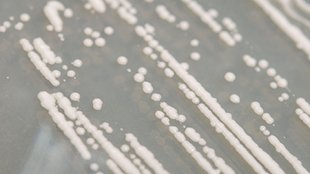 WIKIMEDIA, LILLY_MA large number of human genes can substitute for their defective counterparts in yeast and prevent the microorganisms from dying, according to a paper published today (May 21) in Science. Of more than 400 human-to-yeast gene replacements performed, almost 50 percent were effective at compensating for a missing vital function.
WIKIMEDIA, LILLY_MA large number of human genes can substitute for their defective counterparts in yeast and prevent the microorganisms from dying, according to a paper published today (May 21) in Science. Of more than 400 human-to-yeast gene replacements performed, almost 50 percent were effective at compensating for a missing vital function.
“No one has carried out an evolutionary study of this kind before and certainly not of this scale,” said Nevan Krogan of the University of California, San Francisco, who was not involved in the work. “It’s rather satisfying to see that half of the genes could complement [the yeast function] because it justifies continuing working in yeast as a model . . . to help understand human genes.”
Bakers’ yeast (Saccharomyces cerevisiae) shared a common ancestor with humans about a billion years ago. And this relationship, albeit distant, means that “when we read the DNA and look at their genomes we can recognize many equivalences,” said molecular biologist Edward Marcotte of the University of Texas at Austin who led the new study. “In fact, there ...
















